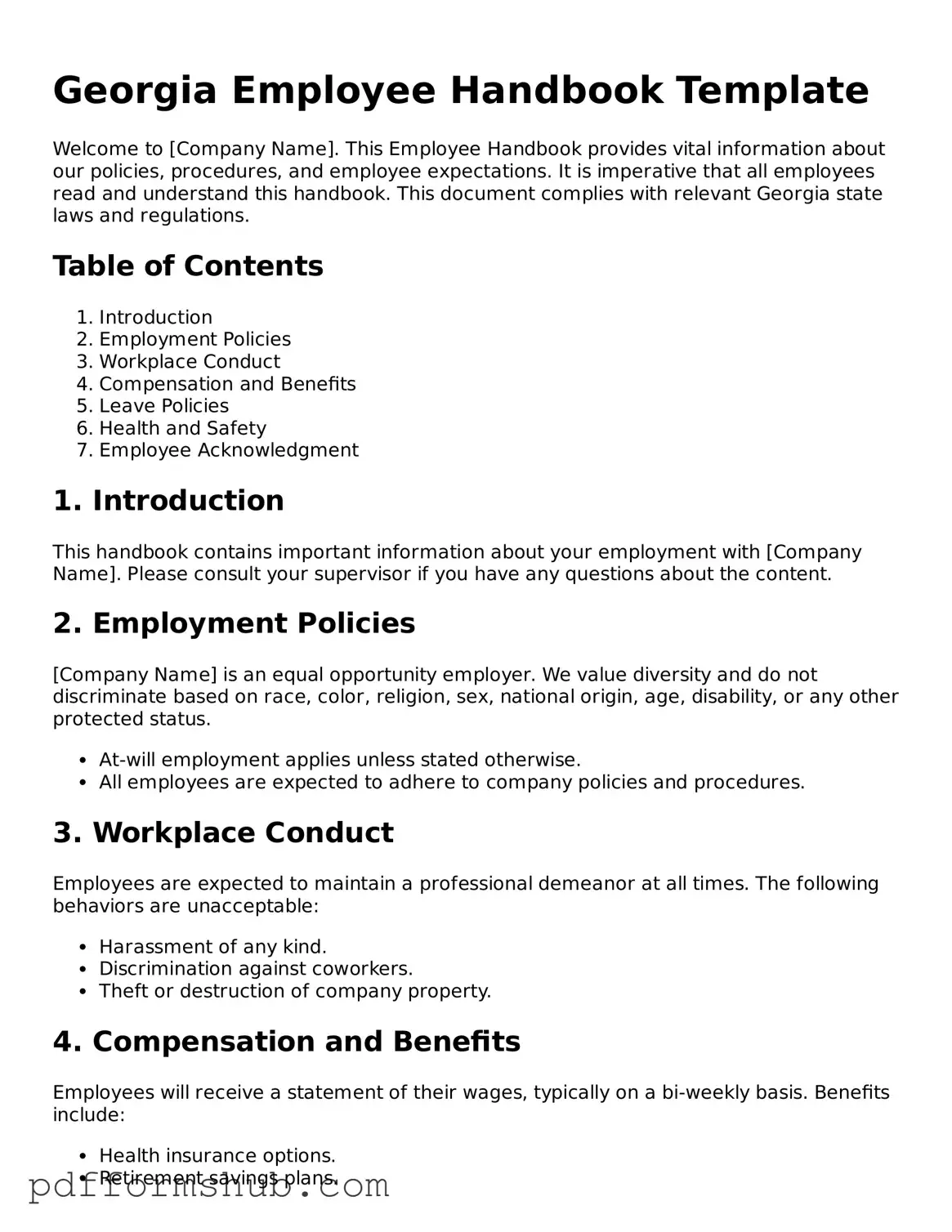Attorney-Verified Employee Handbook Form for Georgia State
The Georgia Employee Handbook form is a vital document that outlines the policies, procedures, and expectations for employees within a Georgia-based organization. It serves as a guide to help employees understand their rights and responsibilities while fostering a positive workplace culture. To ensure compliance and clarity, it’s important to fill out this form accurately.
Start the process by clicking the button below to complete the form.
Customize Form

Attorney-Verified Employee Handbook Form for Georgia State
Customize Form

Customize Form
or
Free PDF Form
Short deadline? Complete this form now
Complete Employee Handbook online without printing hassles.